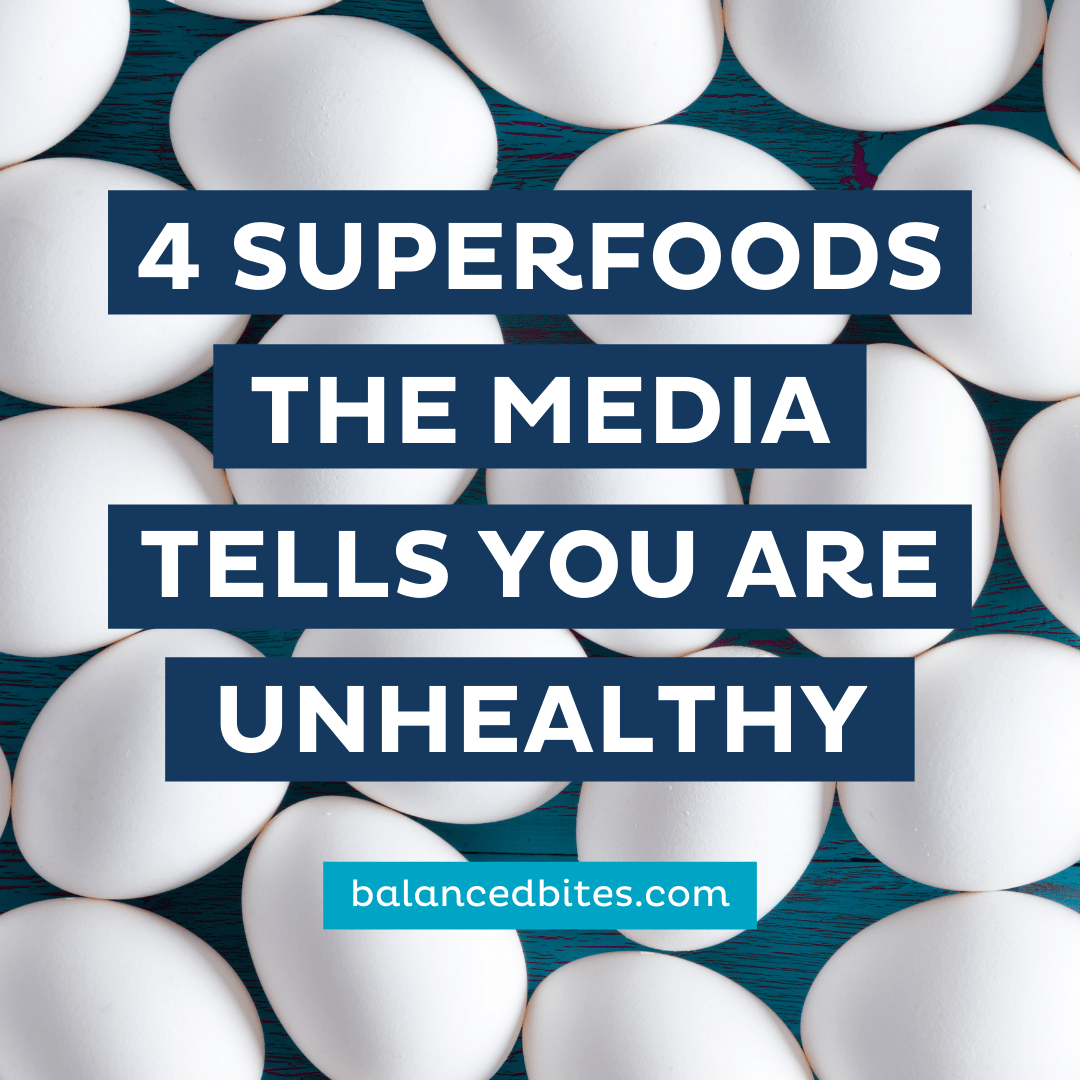 I'd like to note that this is intended as a quick snapshot view of some of the amazing health benefits of foods that are commonly demonized in mainstream media. This is not my end-all-be-all on why we should eat these foods, nor should it serve as an ultimate explanation of why they aren't to be feared.
I'd like to note that this is intended as a quick snapshot view of some of the amazing health benefits of foods that are commonly demonized in mainstream media. This is not my end-all-be-all on why we should eat these foods, nor should it serve as an ultimate explanation of why they aren't to be feared.
If you're looking for a post about acai, gogi berries, flax, or chia seeds… keep moving, because this isn't it. These super-foods are all from animals. Yes, animals.
If you were to leave me off somewhere on an island with either only plants or animals to eat for my survival, do you want to guess which I would choose?
Here's a hint: it would be the most nutrient-dense food available.
I'd like to note that this post is intended as a quick snapshot view of some of the amazing health benefits of foods that are commonly demonized in mainstream media. This is not my end-all-be-all post on why we should eat these foods, nor should it serve as an ultimate explanation of why they aren't to be feared.
1. Eggs – whole eggs, especially the yolks.
Did you know that eating cholesterol doesn’t actually raise the cholesterol levels in your blood much at all?
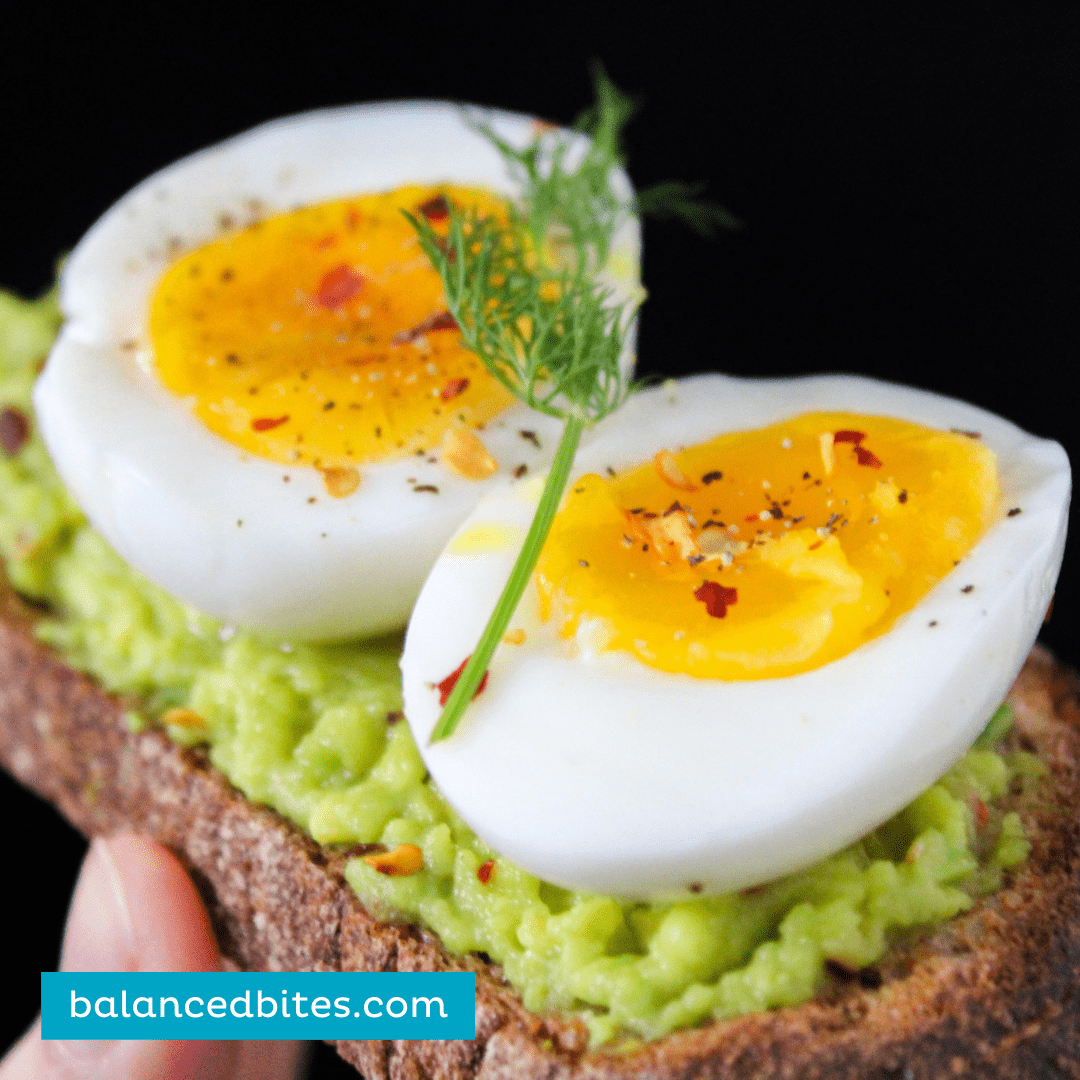 Shocking, perhaps, but true.
Shocking, perhaps, but true.
According to Uffe Ravnskov, author of The Cholesterol Myths, Ignore the Awkward: How the cholesterol myths are kept alive, and Fat and Cholesterol are Good For You, dietary cholesterol tends to increase serum (blood) levels of cholesterol is only about one-half of one percent!
We’ve been scared away from some very essential nutrient dense foods by media and marketing hype that began circulating in 1984 when Time Magazine published an article that speculated about the effects of dietary fat and cholesterol on human health.
As it turns out, there was not sound research to support this claim, but we as a nation ran scared from one of nature’s most perfect foods!
Gary Taubes rebutted that article, and the mainstream demonization of fat in general, in his New York Times Magazine article “What if It's All Been a Big Fat Lie?”
Did you know that cholesterol is the precursor molecule in our bodies from which all of our hormones are made?
The truth of the matter here is that eating cholesterol is not only healthy for our bodies, it’s highly recommended to promote healthy hormone balance.
What else is so great about eggs?
Eggs are rich in choline, which is critical for cell membrane integrity, nerve-to-muscle communication, and optimal liver function. Vitamin A, iron, cholesterol, riboflavin (vitamin B2), vitamin B12 and selenium are also rich in eggs. Eggs are like little a nutrient powerhouse!
Hungry for more?
I talked a lot about the fear people have about eating eggs, especially the yolks, in my post: “Can Americans trust Dr. Oz for nutrition advice: only in moderation.”
Can't eat eggs? Check out my 15 egg-free Paleo breakfast ideas here.
2. Liver – your grandmother used to serve it regularly for good reason!
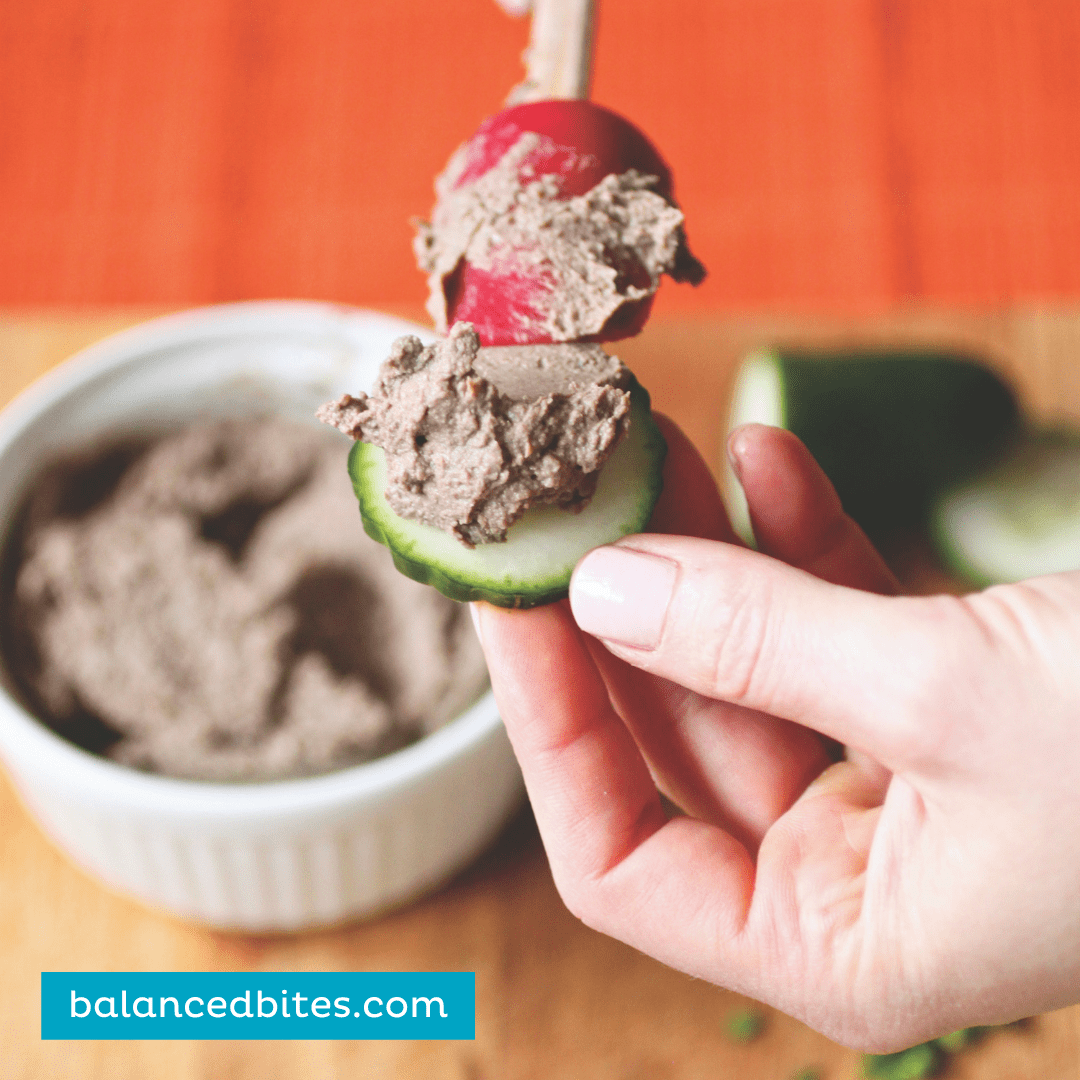 The liver is the filtering and detoxifying organ of the body, so lots of folks got the false impression that the organ itself was filled with toxins and should not be eaten. This isn’t the case! While the liver does complete these processes, toxins are excreted and not stored in the liver of animals we may eat.
The liver is the filtering and detoxifying organ of the body, so lots of folks got the false impression that the organ itself was filled with toxins and should not be eaten. This isn’t the case! While the liver does complete these processes, toxins are excreted and not stored in the liver of animals we may eat.
The truth is that liver from well-raised animals (pastured, grass-fed when appropriate, etc.) are extremely rich sources of B vitamins, vitamin A, and iron – all energizing nutrients that are essential to our health!
Hungry for more?
Check out my easy recipe for chicken liver paté here.
The Food Lovers have a great meatball recipe that you can use to hide your liver here – or their straight-up chicken liver and onions recipe here.
3. Beef – from grass-fed cows, rich in omega 3 fatty acids and CLA – the fat-burning fat!
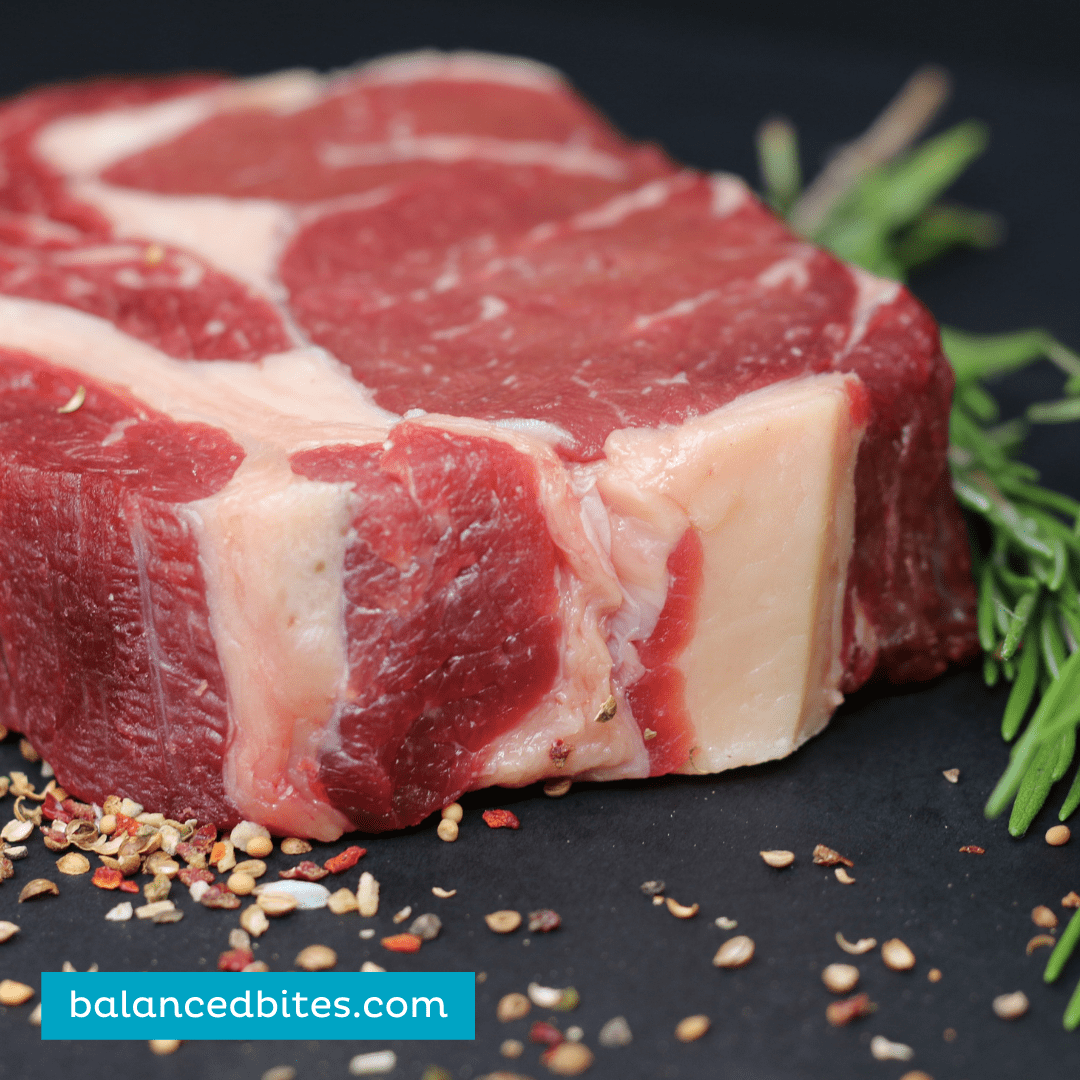 Did you know that red meat from animals that have grazed on grass pasture for the entirety of their lives is a rich source of bioavailable (easily digested and absorbed by your body) protein, vitamin A, vitamin E, iron, zinc, omega 3 fatty acids, and conjugated linoleic acid (CLA)?
Did you know that red meat from animals that have grazed on grass pasture for the entirety of their lives is a rich source of bioavailable (easily digested and absorbed by your body) protein, vitamin A, vitamin E, iron, zinc, omega 3 fatty acids, and conjugated linoleic acid (CLA)?
What’s more is that 100% grass-fed beef is actually leaner than it’s grain-fed counterpart, so while the fat it contains is healthy fat, the amount of fat in it tends to be much lower than that of grain-fed beef.
Farmers use grains, corn, and soy to fatten up the cattle in a speedy timeframe so that it’s less expensive to produce them. 100% grass-fed beef delivers a powerful nutrition punch with fewer calories than grain-fed – better for the cow, and better for you!
Hungry for more?
I drafted this post two weeks ago and a couple of days later Chris Kresser shared more great info with us on why red meat is healthy. Check out Chris's post, “Red Meat: It Does a Body Good!” where he expands on some of the points I've made above.
4. Lard – rich in vitamin D and heat-stable, this traditional fat is a top-pick of mine for cooking and nutrients!
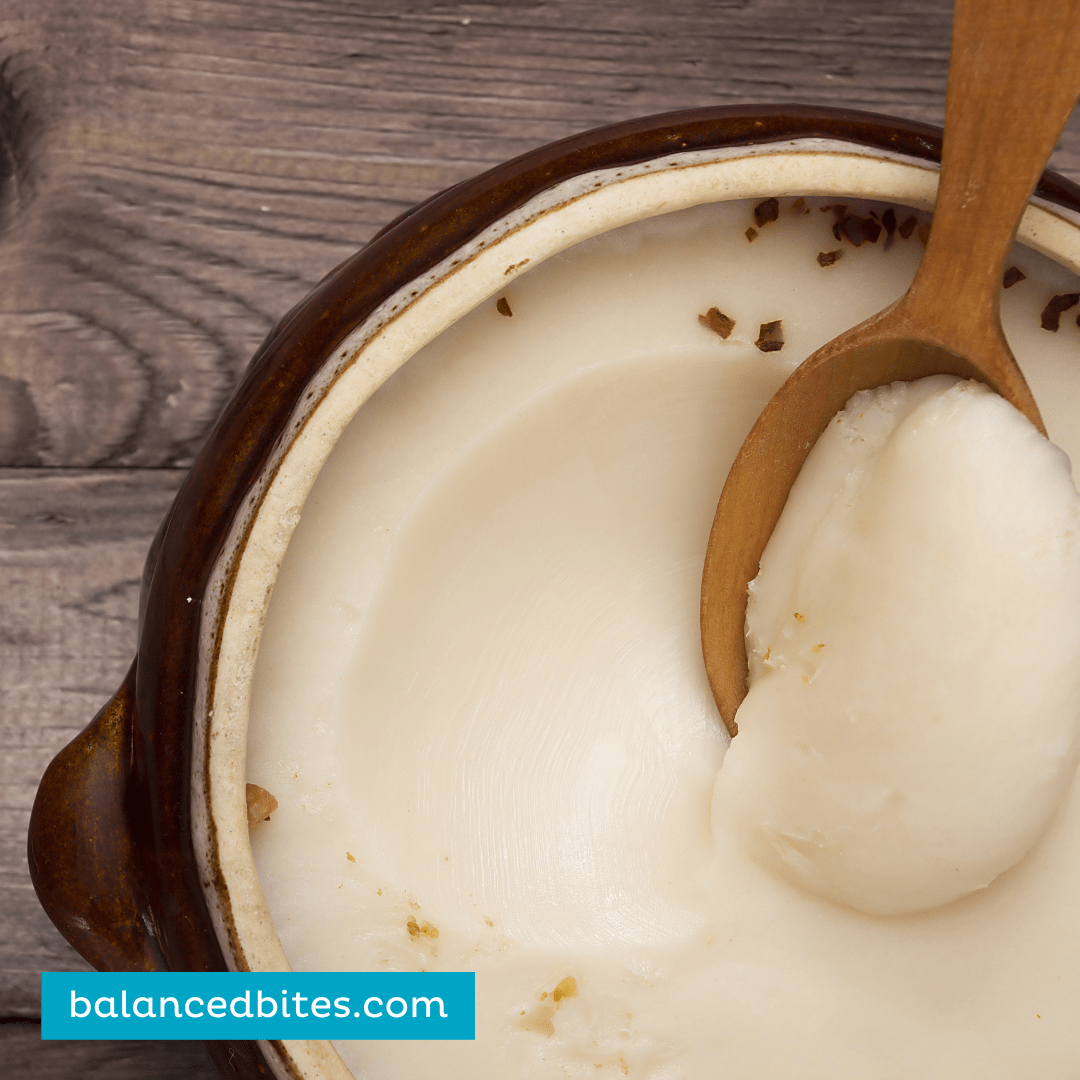 According to Mary Enig, author of “Know Your Fats”, lard (fat rendered from pork) is comprised of about 50 percent monounsaturated fatty acids – the same type of fat we look for in olive oil!
According to Mary Enig, author of “Know Your Fats”, lard (fat rendered from pork) is comprised of about 50 percent monounsaturated fatty acids – the same type of fat we look for in olive oil!
What’s more, lard is also one of our richest dietary sources of vitamin D, a nutrient that’s so tough to get from food – and from climates that lack sunshine year-round – that many doctors and nutritionists today now recommend that people take it as a supplement.
The solid-at-room-temperature of lard shows us visually what the chemistry indicates: that it is also rich in saturated fats.
Once believed to have negative impacts on our health, saturated fats from natural sources – like well-raised animals and some tropical plants like coconut and palm fruit – have been exonerated time and time again and shown to in fact be much healthier for us than refined, highly processed seed-oils.
Unlike naturally occurring saturated fats, man-made seed oils are rich in polyunsaturated fats that are highly susceptible to damage – from exposure to heat, light, and air. Cooking with fats that are more saturated – more stable and less easily damaged – is always a better bet!
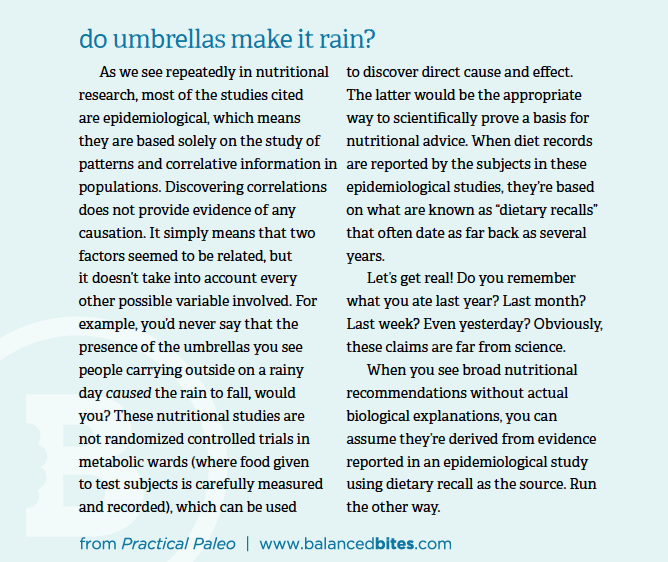
Hungry for more?
My top picks for cooking fats (PDF) are: lard, tallow, coconut oil, and butter or ghee from a grass-fed animal.
The bottom line here is this: as the media spews more and more information that aligns with the conventional wisdom of what is healthy to eat (low-fat foods, whole grains, lean meats and avoiding saturated fat, etc.), the importance of speaking the truths about the amazing health benefits of these traditional, real, whole foods remains critical.
If you enjoyed this article, please take a moment to share it with others via Facebook, Twitter, Pinterest or email.

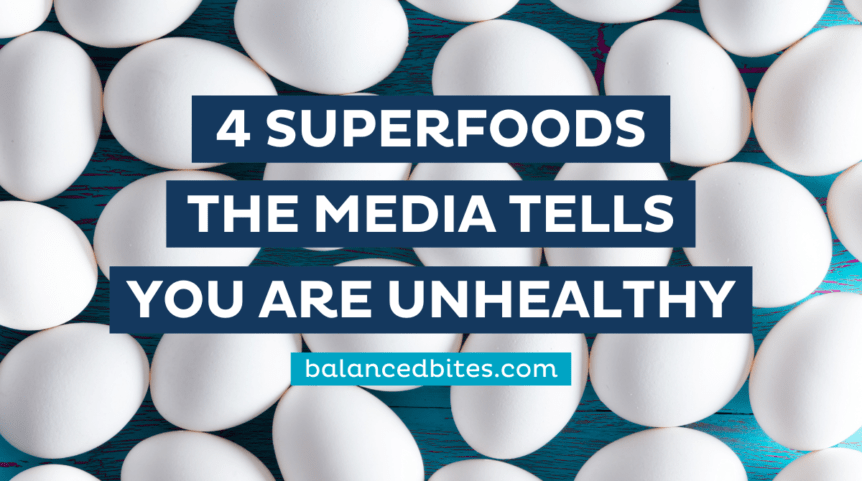
Comments 55
Hi Diane,
I thought you might be interested in this as it sort of ties in with this post (fats). There has been a petition sent out recently via an Australian blogger asking The Heart Foundation to stop adding their tick of approval on products like margarine and vilifying things like butter.
The original petition can be viewed here: http://www.change.org/en-AU/petitions/the-heart-foundation-stop-promoting-margarine-and-processed-food
Sure enough The Heart Foundation came back with a response which is less than surprising:
http://thehealthyjessie.wordpress.com/2013/03/06/the-heart-foundations-response-to-my-petition/
I’ve recently been diagnosed with breast cancer & have been on a Paleo diet for 21/2 years.
I have several people telling me now(professionals) that being vegan will help me heal the cancer. Any thoughts on the subject? Thank you!
I can’t give you any medical advice but I can tell you that if I were you, I wouldn’t be going vegan based on the diagnosis. I would be keeping my diet as clean as possible (no sugar, only organic foods, pastured, etc.) and I’d be taking my own advice from the cancer recovery meal plan in my book and making some smart supplementation.
Breast cancer has many, many epigenetic triggers – but I would not peg one of them as eating well-raised animal foods.
Hope that helps- best I can offer.
I would love to get the book, which oneIs it?
Thank you for your quick response.
Her book is called Balanced Bites. You can find it on Amazon. 🙂
Sorry, her WEBSITE is called Balanced Bites (obviously, since you’re on it). The book is called Practical Paleo. Sorry about that.
My mom was told a vegan diet would cure her diabetes too and I think it was practically killing her. TOO many carbs. Cancers feed on sugars, and carbs turn in to sugars once in your body, so I would not think that a vegan diet would be the best way, but for sure check with your doctors and get feedback from other cancer survivors.
Yes, absolutely, a plant-based diet (esp if you stay away from soy, processed, refined carbs, etc) is a very healing, anti-cancer diet. It has been done time and time again. Esp, if you add things like wheatgrass shots, a high proportion of raw foods, you will notice amazing results. You want a high proportion of raw foods, esp dark leafy greens which have cancer fighting properties. YOu probably want to check out some sites like kriscarr.com
I watched an online friend die of late-stage breast cancer after going on a macrobiotic diet.
Spare me.
(For those knowledgeable enough to wonder, this was a Western-style macrobiotic system, heavy on vegetables and rice, little to no meat. I am given to understand it is done much differently in China.)
Gerson, Hippocrates , etc; are excellent approaches to cancer however I would personally go to the Arcadia clinic in Kassel, Germany to get IV of artesunate and hyperthermia plus do Gerson therapy. I find it dismaying that after 2.5 years on a paleo diet cancer shows up and it’s one reason (having had DCIS myself and healing it via Hippocrates diet) I won’t commit to paleo despite all the *experts* touting it’s benefits. I also don’t know of one single ketogenic healing center for cancer. This is a subject I study in depth and all if not most of the healing clinics in Germany, Denmark, Mexico etc; are all using plant based diets to reverse cancer. Also as for the macrobiotic comment, couldn’t agree more. I was trained originally by the Kushi’s as a macro counselor and I watched many long term macrobiotic teachers die of cancer including Aveline and Lily Kushi.
http://www.arcadia-cancer-treatment.com/
I am sorry to hear you have cancer. Have you tried going to a naturopath and talking about about healing through diet and food?
Are you aware of recent research that shows that while all cells in your body utilize glucose for energy, cancer cells are unable to live without glucose, whereas the other cells in your body can get energy from the fat in your body. I saw something recently where they made glucose radioactive and the cancer cells glowed like Christmas trees (making them easier to see). Check it out, a very low carb diet might be more beneficial than a veggan diet, avoiding high glycemic foods like grains, potatoes and rice; and eating healthy grain-fed meat and healthy fats like coconut oil. (I am not a doctor either).
Ketogenic diets can be very helpful for certain types of cancer, but not all. Very important to note. Some cancers are quite responsive to this as therapy, but some are NOT. (Not a doctor, and not dispensing medical advice in any way, of course.)
My book is available through a link on the right side of the site here, “Practical Paleo” – http://amzn.to/practicalpaleo
Donna, my friend had breast cancer last year and did very well on a paleo-type diet and was told by her integrative oncologist at UCLA to eat red meat during her course of chemo to keep her blood counts up and iron levels good and to eat extra protein to prevent muscle loss.
She also did a regimen of supplements to reduce treatment symptoms and lower her risk of recurrence (she did great on the supplements). She was told that with this particular program, people with her type of breast cancer reduce their recurrence rate from 20% to about 5%.
If you’re interested in consulting with that integrative oncologist, here’s her info- she was also invaluable for reviewing the types of treatments available and had much more cutting edge info than the oncologists at Vanderbilt University, where my friend was undergrowing treatment:
http://www.simmsmanncenter.ucla.edu/about/section/bios/hardy.asp
Thank you very much Erin, I will check it out!
Best to you!
Lard should be unhomeginized is that correct ?
IMO you’re looking for “rendered lard” with the only ingredient being “pork fat” maybe “leaf lard” or “salt” and that’s it. Super easy to make yourself!
Unhydrogenated, yes. Roughly speaking (look it up on the USDA nutrition database to be sure, you can find that on Google), lard’s fat content is about 45% monounsaturated, 45% saturated and about 10% polyunsaturated. I am not sure why it ever occurred to anyone to hydrogenate it ever, it is quite solid and stable at room temperature as is. The big difference is you can scoop it out of the tub with a spoon when it is cold thanks to the fats that are not fully saturated, unlike butter which is very solid at fridge temp.
Look at the label and it’ll tell you if they altered the fat.
Other than rending my own lard, any ideas on that one? We do get a grass-fed cow so I could try it, just haven’t been brave enough yet!
You can buy it rendered from places online like US Wellness Meats. Chances are there are also local places that offer it by you. If you’re near Atlanta I know of some. But rendering your own is the cheapest option and it’s not hard at all! I buy 1/4 grassfed cow at a time and use the crock-pot to render tallow. It’s really easy, just throw it in there on low and let it go!
Cows will yield tallow while lard is from pigs… so if you want to render tallow you can. It’s healthy as well!
My parents rendered their own lard. We called it smaltz. A late night treat was to get some rye bread, spread it with lard, then top it wirh fresh garden vegetables, like radishes or peppers or carrots.
When the information came out that lard was high in saturated fat and to be avoided, I thought my health was doomed.
Turns out all along that my childhood diet was healthy, who knew? I’m in my 60’s now and have a great lipid profile.
Smaltz is from chicken or duck while lard is from pigs -oinks!
Awesome and much *needed* info for the general public, as always, Diane.
Just want to clarify one little thing…
In the section about eggs, you mentioned that cholesterol is the precursor to all our hormones. It’s the precursor to the steroid hormones (like cortisol, estrogen, testosterone, progesterone, and others), but not to *all* hormones. Lots of hormones are peptide hormones (coming from proteins), like insulin, secretin, anti-diuretic hormone, etc. A minor point, but I did want to clarify before the biochem police unleash their minions on you. =)
And of course, that’s not to take away from the importance of cholesterol and the deliciousness and darn-near life-giving properties of egg yolks! SO I guess we can say that when it comes to hormones, whole eggs are indeed a perfect food — a bunch of cholesterol *and* complete, highly bioavailable protein. Woohoo! 🙂
Thanks 🙂
Thanks for that clarification, Amy. It now explains why half the hormones I take levels for go to the endolab and half go to the steroid lab.
P.S. I’ve made your chicken liver pate recipe a few times now, and it’s delicious. THANK YOU for helping me discover the only way I can get liver down the hatch. (I sometimes put a bit of beef liver in meat loaf and chili, but pate is such a nicer way to eat it.)
I love this article. Thank you, I cannot wait to spread this around.
I’m just curious, I eat eggs everyday usually anywhere between 2-5. How many eggs do you believe is too many per day?
I don’t have a set number – as many as you like. If you eat a lot of eggs, I always recommend looking to source the best quality possible — organic, pastured, NOT vegetarian fed, and soy-free…
I been eating paleo on and off (working on that) for over a year, wondering why my stomach still hurt. I looked in the fridge and noticed my omega b12 fortified eggs I buy are vegetarian fed!
A really excellent article. I was referred to this page by Healthy Living How To — and have bookmarked your site.
I tell people often that they should eat eggs, a perfectly healthy food choice and very low carb, and full of essential nutrients. And they are often surprised. It’s been more than 25 years since “they” started saying that eggs are bad for you because they contain cholesterol. And even at that time I learned that most of the cholesterol in our bodies is not from the food we eat, but made by the body.
It’s appalling to me how long it takes for society and health professionals to “unlearn” some of the really bad health advice we had been given in the past. Most are still pushing low calorie and low fat diets instead of controlling carbohydrates and eating healthier fats, and healthy meats, including beef.
Welcome, Gretchen!
What’s your favorite source for getting good quality lard?
Totally agree! Even though my grandma used to be a smoker & doesn’t have the best diet, I think she’s stayed so healthy at her age because she LOVES liver. I still haven’t tried it yet (trying to get over the ick factor), but my farmer’s market sells beef & lamb liver, so I’m going to pick some up soon.
Likewise, I think the reason Paula Deen was diagnosed with type 2 diabetes in her sixties and not her forties (as my mother was) was that she loves butter so much. I think it protected her. It’s a shame she’s shying away from it now. I expect to see her health visibly decline.
I have wondered a lot lately … I know saturated fats are heat stable … yet I’m still wondering if some of the good stuff, such as Omega 3s and CLA really do survive the heat of cooking?
Thanks for all you do, Diane!
Great article! But be careful about the lard. As with the beef and liver, it ideally it should be from fully pastured animals supplemented with organic feed. I wouldn’t eat commercial hydrogentated lard from factory farm pigs. Best to make your own or find a local farm source. Sometimes you can find good lard at farmers markets. Factory farmed pork is relatively high in omega-6 fat and likely full of pesticide and GMO break-down chemicals from the conventional feed. Lard from pastured pork is also more likely to have higher vitamin D.
It is possible to get commercial lard that isn’t hydrogenated, if you can’t afford the really good stuff. I’ve found it lots of times–you just have to read labels. I can’t speak to its vitamin D content but I would imagine the USDA’s numbers on this take the commercial lard into account, so take that as your baseline if the vitamin’s not on the label.
Great post Diane, thanks for sharing. I need to show this to others in my family who are skeptical. I say try these for awhile and see what happens you can always go back
Diane, I’m new to your site (and just received my copy of practical paleo – excited to get reading!). My question is about lard, specifically, ideas for cooking. I typically cook using coconut oil and then use either coconut oil or ghee for extra fats atop my veggies or sweet potatoes. Can you help out gal who has never used lard for cooking? Please 🙂
Use it in cooking anything savory! Just keep trying it with different combinations of food anytime a cooking fat is called for 🙂
Just stumbled upon this wonderful site! Thank you so much. I’m into the paleo and think it could be a wonderful lifestyle for others. Erin, thanks for the info on the oncologist. A very close friend of mine was just diagnosed with breast cancer and we are both quite frightened. I’ll be passing all this info on to her.
It so interesting that the media has people believing that these foods are bad for us. I personally LOVE eggs and beef. I’m glad to hear that I can actually eat them and not worry about my health. It is also great to hear from all those with breast cancer. I have many family friends who were diagnosed in the past. I will definitely have to recommend the Paleo diet to them.
I’m so tired of people saying that eggs aren’t good for you – ESPECIALLY the yolk. The yolk has so many fantastic nutrients, it’s just worth eating.
I have hypoglycemia (sawtooth curve – blood sugar dropped to 23) and am having a challenging time getting things balanced. I wake up a lot during the night. It has affected my adrenals. I have been on the paleo diet for about 4 weeks and have not seen any improvement. Any tips?
Please goggle iodine and how it is used to prevent breast and other cancers.
I’ve heard good things about ground linseeds as well. I lost the link to a study that showed good result from feeding women with breast cancer muffins with the stuff in it versus a group of women with ordinary muffins. I wouldn’t eat it in muffins myself. There are plenty of healthier ways of enjoying linseeds.
I’m reading here about getting over cancers(or not) with different diets.
I believe anyone who has had chemo or radium will find it very difficult to overcome their disease no matter which diet you choose.
I and many of my friends follow the Primal Diet. A little like Paleo, but all raw.
Every one I know does well on it, but it is a very challenging diet.
But if Paleo is your choice then it’s still a very good program.
Cheers.
Wow I didn’t know really that those 4 are the unhealthiest food. Thank you for sharing this post. I will now look out for those foods for sure.
?
I have a rather specific question, and I’m really hoping someone here might be able to help! I have been paleo for about 6 months, and I have your book. I have autoimmune symptoms and a leaky gut, slowly getting better, but there’s still a lot of fixing to do. In Practical Paleo you mention phosphatidylcholine as a supplement that’s useful when you’re avoiding eggs, would that have same effect as a choline supplement? When I looked online for phosphatidylcholine I also noticed that they were all derived from soy, is that ok, or might that be a problem? Would choline bitartrate be better? Which one should I choose when I can’t eat eggs, and my intention is to heal a leaky gut? Thanks in advance for any suggestions on this!
great post! i eat em all and i feel better than ever! not only that but i’m also the leanest i’ve been in my life! even 5lbs lighter than high school and i was a track athlete then! i never listen to the conventional wisdom anyway. keep on 🙂
I find Dr. Oz to be so frustrating. Some of his advice is great, but he is still buying into the mainstream view on fats. He is seen by such a big audience, he could make a huge difference. Even Dr. Weil, who used to be pro low-fat, has changed his tune, because he studies the research. He says to never drink skim milk, and just make sure meat comes from pastured animals. His own restaurants reflect these ideals. I appreciate his willingness to change his views. And Dr. Nicholas Gonzalez uses something like 19 different diets for cancer treatments, some with red meat at every meal, others vegetarian.
With celiac and hypoglycemia, when I have tried an all-plant diet, my carb cravings come roaring back, I gain weight nearly overnight, and my gut is much unhappier. Maybe some people truly can eat plant-based only, but my body likes Paleo/Weston A. Price cooking.